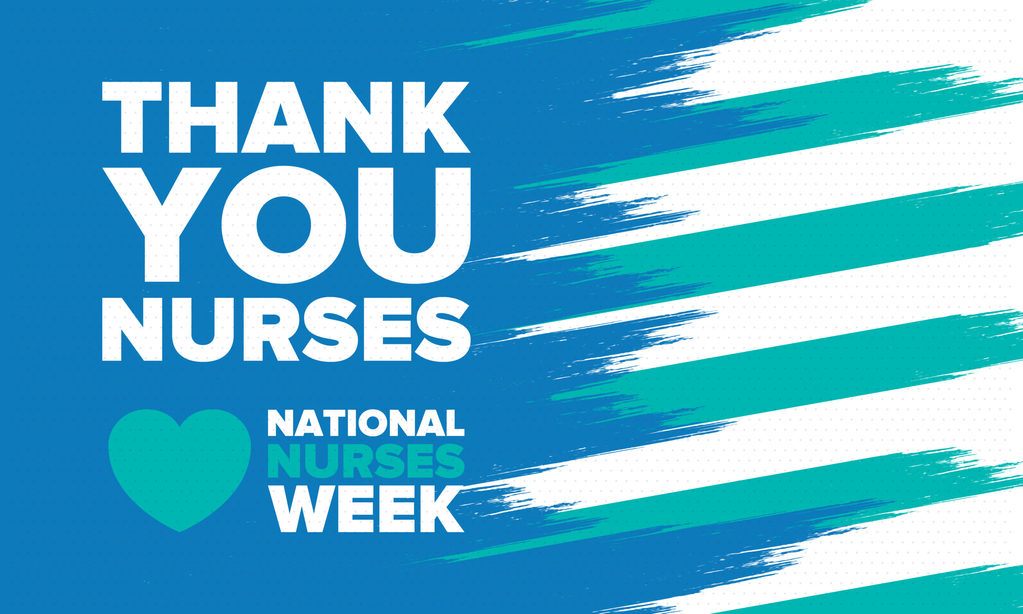
National Nursing Week 2020
As we prepare to celebrate National Nurses Week during the Covid-19 pandemic, it’s difficult to find words that adequately express the thanks and gratitude that each of us feels for America’s brave, dedicated, and heroic nurses during this crisis. And the truth is that even a week of honoring our nurses simply doesn’t cut it, because they deserve our respect, thanks, and admiration every day of the year.
For many folks, it’s hard to understand why anyone would want to work in such a physically and emotionally demanding profession, but the truth is that many nurses don’t think of it as a profession, but rather as a calling. That was certainly the case for Florence Nightingale, the British nurse whose experiences on the frontlines and advocacy work back home helped reform medical care and established nursing as an essential position in society.
Each year, National Nurses Week begins on May 6th to celebrate America’s nursing professionals and concludes on May 12th–a date that was symbolically chosen because it is also Florence Nightingale’s birthdate. To celebrate the 200th anniversary of Nightingale’s birth, the World Health Organization declared 2020 the year of the nurse, which is especially appropriate in this time of global health crisis.
Nursing in the modern era
While supportive care roles have always existed in some form throughout recorded history, nursing as we know it today only came into existence in the second half of the 19th century, as Nightingale and others began to recognize the dire need for skilled healthcare providers, both on the war front and at home.
Nightingale, who cared for wounded British soldiers during the Crimean War, witnessed firsthand the pain and suffering her patients experienced due to a lack of proper medical care and trained nurses. Upon returning to Britain, Nightingale embarked on a campaign of reform, publishing training manuals for nurses and advocating for the establishment of nursing schools and standardized care. In 1860, Nightingale and a group of influential benefactors established a nursing school at St. Thomas’ Hospital, where they began training future generations of nurses to implement their vision of increased care, better patient outcomes, and less global suffering.
Through tireless advocacy work, Nightingale and her supporters revolutionized nursing and helped establish the modern system of care. Politicians and citizens alike began to see that nurses are essential to a functional healthcare system. Working in warzones, hospitals, rural clinics, and family offices around the world, nurses provide critically needed care to patients day in and day out.
Today, Covid-19 provides a somber reminder of how crucial nurses and other frontline workers really are.
Ways to show your support
During the Covid-19 Pandemic, there are many ways that you can show your support–not only during National Nurses Week but also year-round.
- Show you care and are thinking of them – As natural caretakers, many nurses and providers feel pressure to shield their friends and families from the stress and trauma that accompanies their work, shouldering the burden alone. During this crisis, reach out to the nurse in your life to let them know you’re thinking of them. Offer to make yourself available if they need someone to listen, and check-in with them weekly or bi-weekly. If they do want to talk about their experiences, remember to listen actively and show them you’re there, especially during hard times.
- Donate PPE – If you or your business have a stockpile of personal protective equipment (PPE) such as N-95 masks, respirators, or face shields, consider donating it to a local hospital or through an online donation portal. By helping provide essential PPE, we can help keep our nurses and other frontline workers healthy.
- FLATTEN THE CURVE! – One of the biggest ways we can thank our nurses is by following the guidance of trusted public health officials. Social distancing, frequent hand washing, and minimizing unnecessary trips outside of your home will help slow the spread of the virus and prevent the healthcare system from becoming overwhelmed. By abiding by the CDC-recommended best practices, every one of us can help save the lives of patients as well as healthcare workers.
- Donate to the American Nurses Foundation Coronavirus Response Fund– If you would like to give a financial gift, considering donating to the Covid Response Fund for Nurses, which is run by the American Nurses Foundation, an official partner of the American Nurses Association. This fund benefits nurses in a variety of ways, from offering direct financial relief to funding access to mental health care professionals during this time of crisis.
Today, nurses and other healthcare workers are more united than ever in the face of Covid-19. Simply put, never in our lifetime has there been a greater unified effort to confront an illness on frontlines around the world. Together, let’s thank our nursing professionals and continue the crucial advocacy work needed to ensure that our frontline workers have the resources they need to stay safe.

